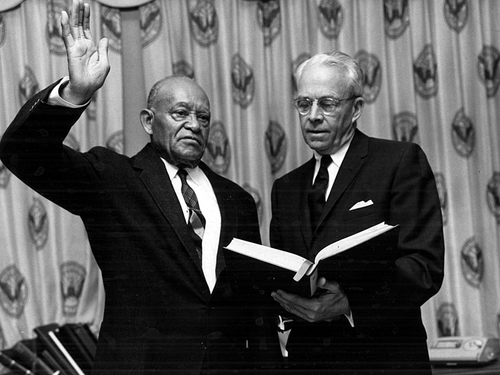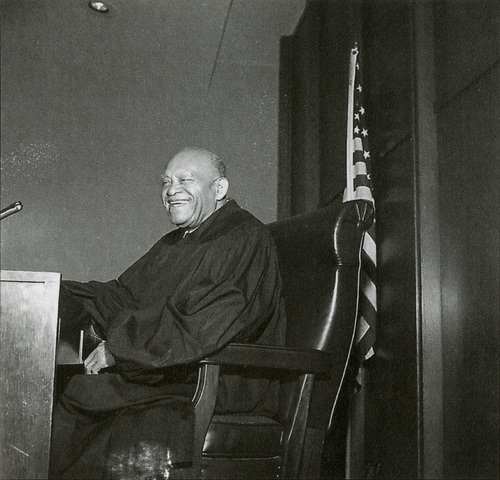Austin T. Walden
As a member of both the Atlanta and American Bar Associations, Austin T. Walden litigated cases in all levels of the Georgia state court system, as well as the U.S. Supreme Court. He received his undergraduate degree from Atlanta University in 1907 and his law degree from the University of Michigan in 1911. He was forced to attend an out-of-state school, as no law schools in Georgia would admit him. After practicing law in Macon for a few years and serving in World War I, he moved to Atlanta and began his own law practice in 1919. He lived in Washington Park.
From the 1920s through the 1940s, Walden and his work partner Thomas Henry were the only Black practicing attorneys in Atlanta. Walden would often represent individuals who were victims of violent racist attacks. Some of his most notable cases included:
- 1927: Successfully worked to drop the charges against Dr. C. A. Spence, a reputable Black dentist. The dentist was accused of disorderly conduct after refusing to exit a streetcar when the driver, who beat him due to his refusal, wanted to have a drinking party.
- 1931: Worked with Elbert Tuttle, a white attorney, to secure a fair trial for John Downer, a Black man wrongfully accused of rape. Although the trial and fight to save Downer’s life were unsuccessful, the duo established a precedent that a defendant has the right to a fair trial free of mob influence.
- 1943: Used a federal legal suit to achieve equal pay for Black public school teachers.
- 1952: Represented Horace Ward in his unsuccessful attempt to gain admission to the University of Georgia School of Law.
Walden also founded the Gate City Bar Association for Black lawyers in Atlanta, in 1948. In 1964, Atlanta Mayor Ivan Allen appointed him as an alternate judge of the Atlanta municipal courts, the first Black judge in that position since Reconstruction. Although Walden retired in 1963, he continued to take charity cases for free until his death.
Other than his fame surrounding his legal career, Walden also served as the president of the Atlanta branch of the NAACP from 1924 to 1936. He often acted as the chief negotiator for civil rights activists who attempted to desegregate lunch counters in locations around Atlanta. He was also the founder and chair of the Atlanta Negro Voters League.


